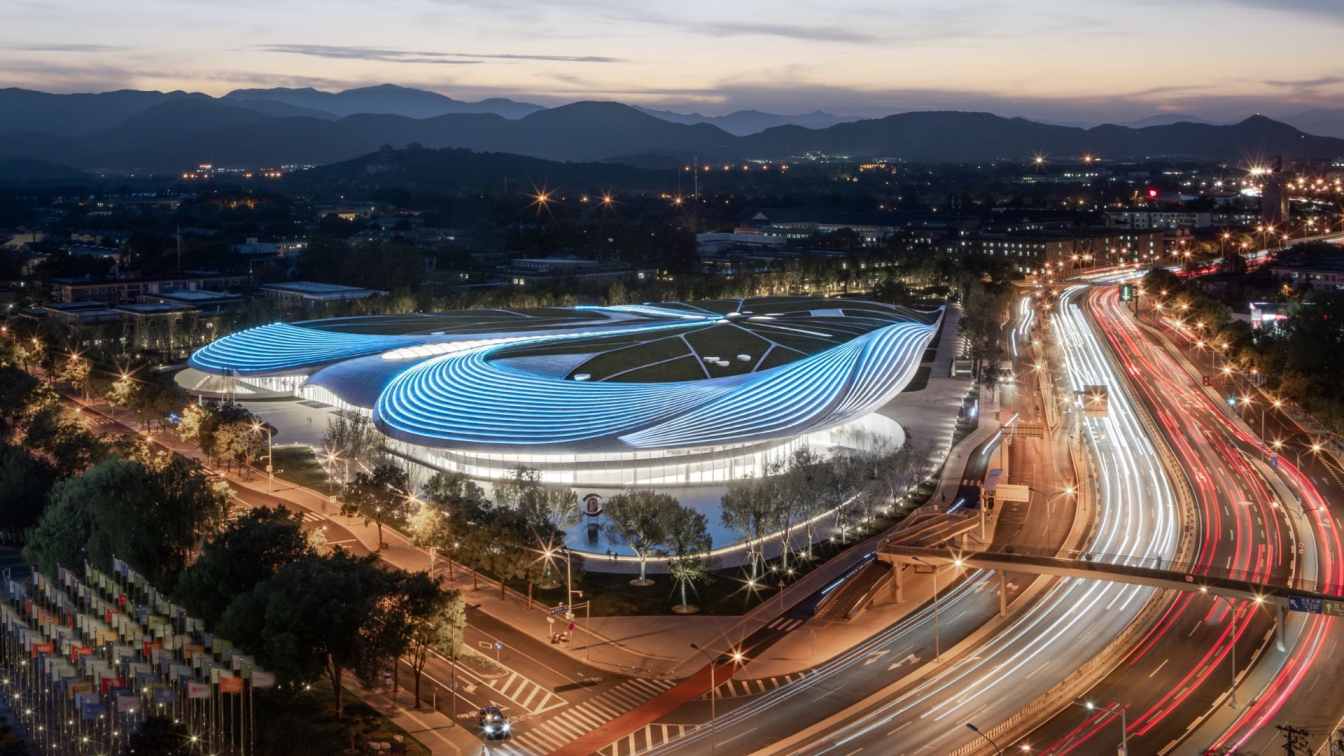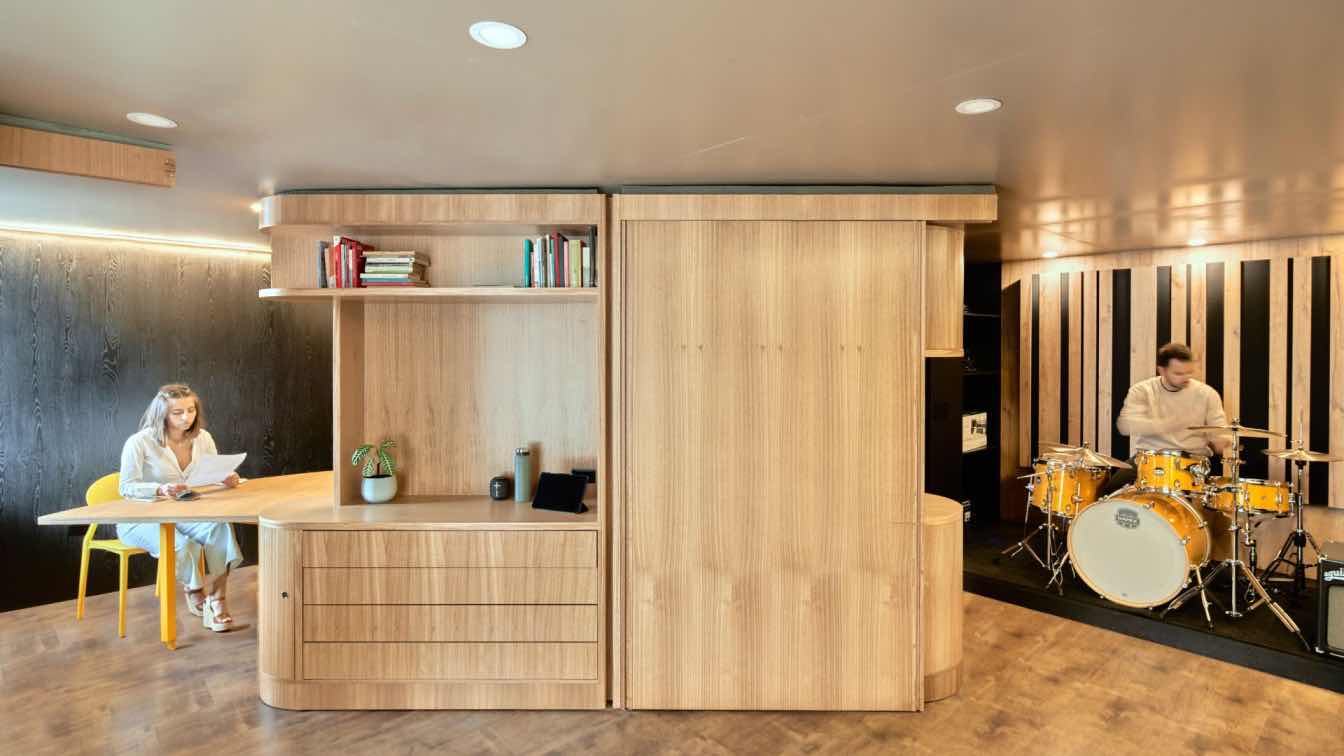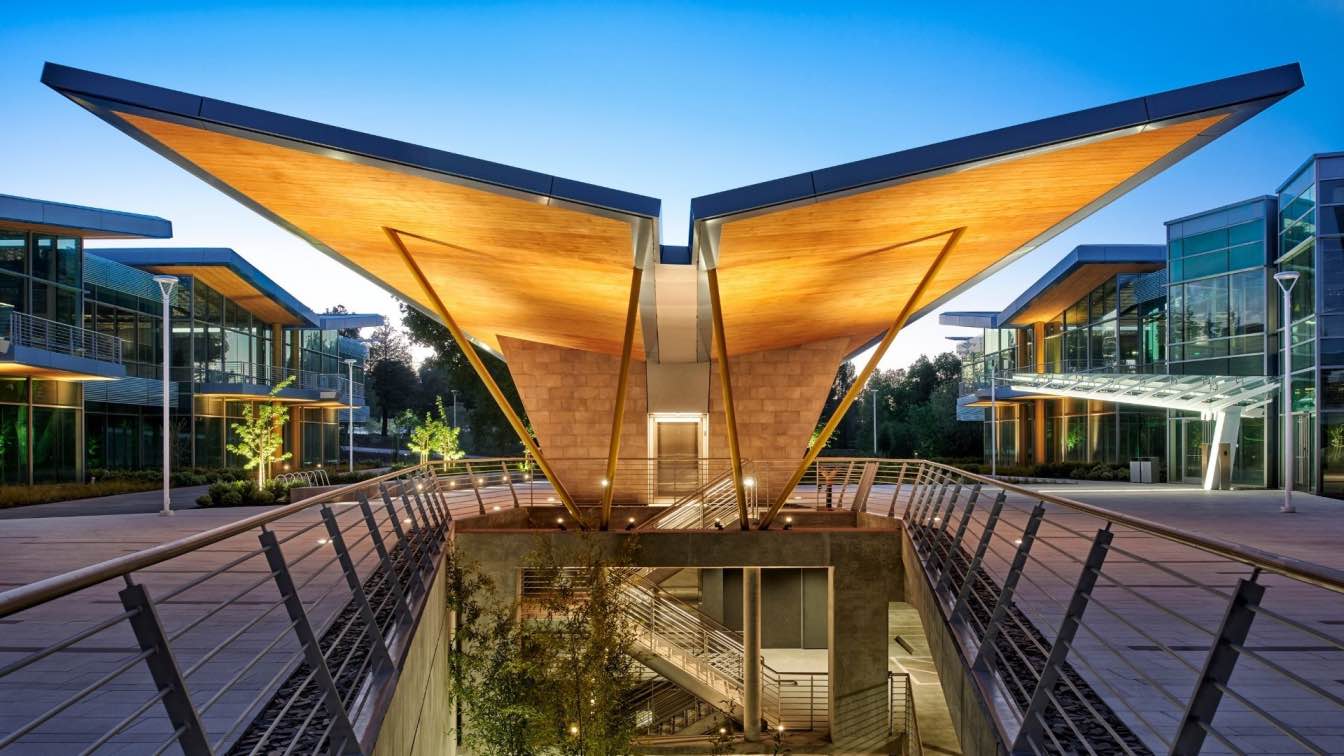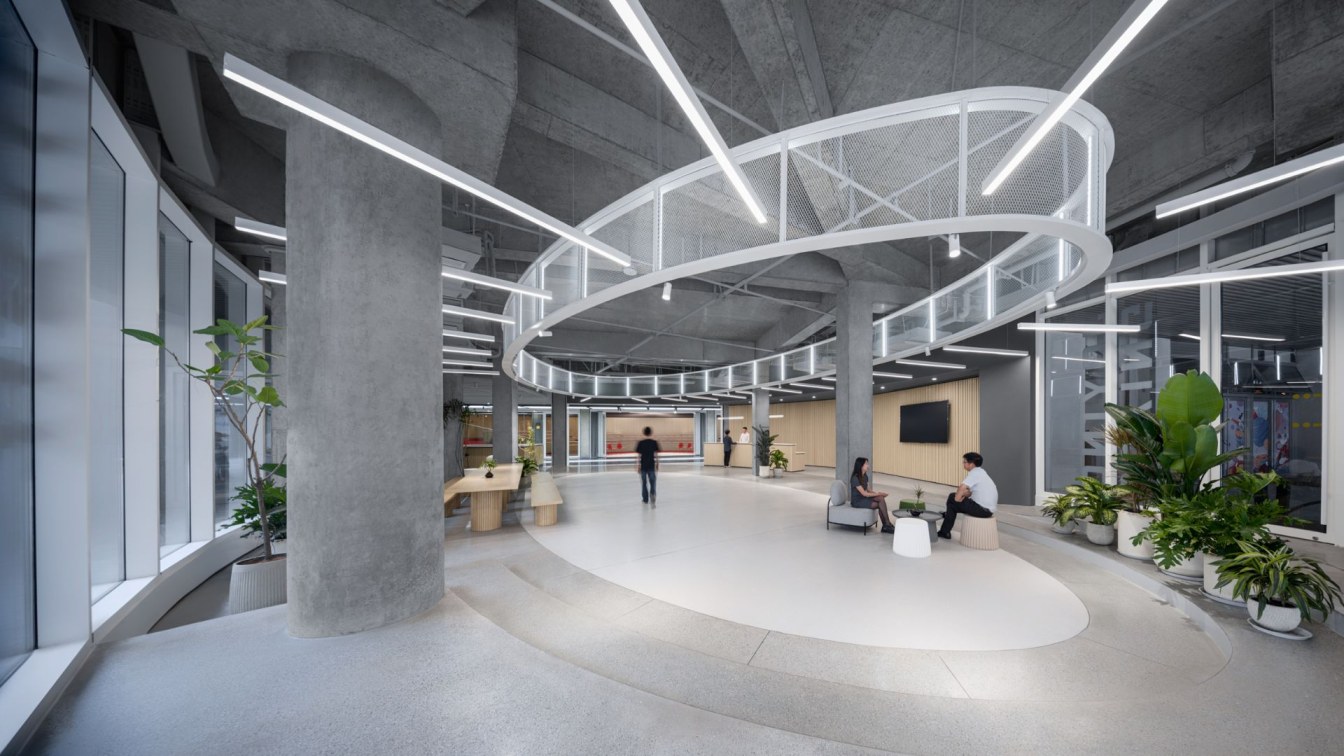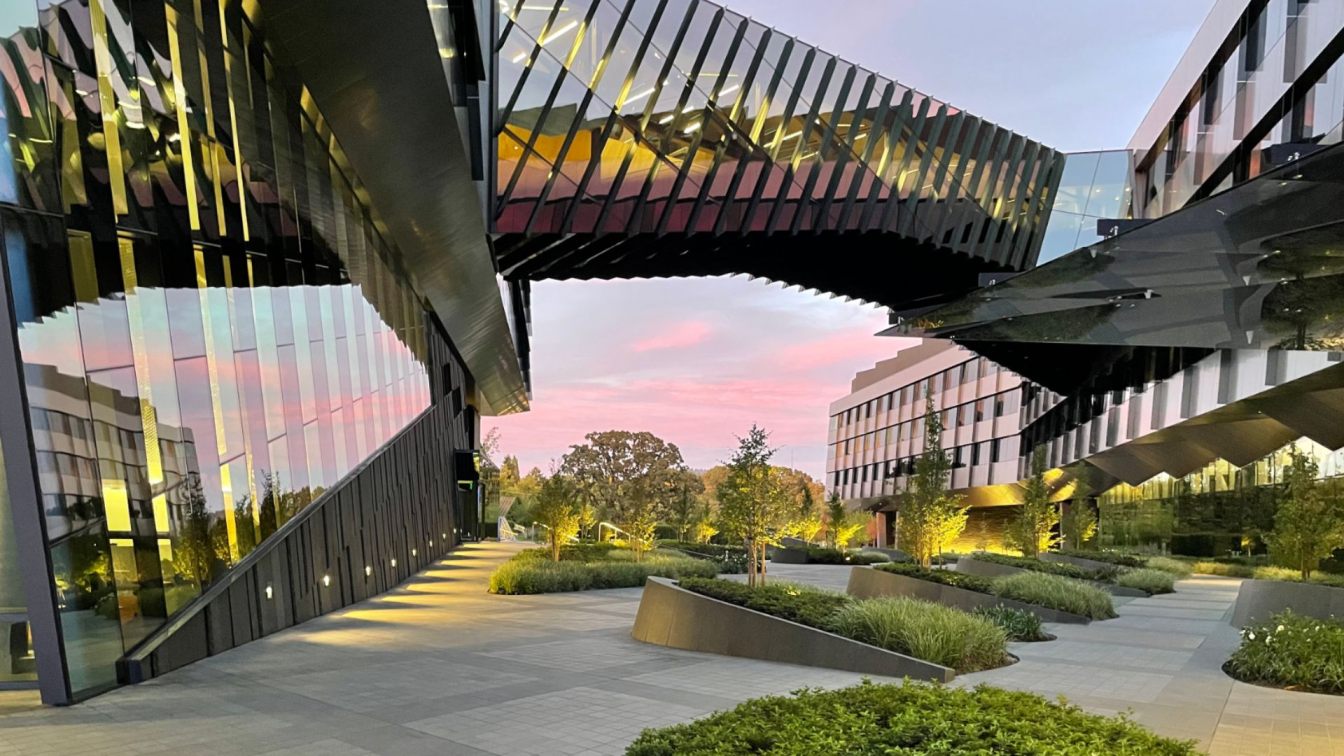Ma Yansong / MAD Architects proudly announce the completion of the ZGC International Innovation Center in Beijing. The center, designed specifically to serve as the permanent venue for the annual Zhongguancun Forum (ZGC Forum), spans a total floor area of approximately 65,000 square meters and features a 17,000 square meter green roof.
The ZGC Forum is an international conference focused on innovation and technology held annually in the Zhongguancun area of Beijing's Haidian District. This area, blends nature and history with modernity and technological advancements. It's near historical landmarks like Yuquan Mountain, the Summer Palace, and Yuanmingyuan Garden, alongside prestigious universities such as Peking University and Tsinghua University. Known as China's Silicon Valley, Zhongguancun is a major tech hub hosting numerous high-tech companies, startups, and research institutions.
Since its inception in 2007, the ZGC Forum has taken "Innovation and Development" as its central theme, drawing national and international scientists, entrepreneurs, and emerging talents to share and discuss groundbreaking ideas on a variety of topics. Over the years, it has evolved into a leading global platform for the future of high-tech innovation, exchange and cooperation. The ZGC International Innovation Center, designed by Ma Yansong/MAD Architects, fosters a deep connection between humanity, the city, and the environment. It blends into the cityscape with an accessible green roof park, consisting of trees, gardens, walkways, and architectural features that extends the surrounding gardens and hills making it completely disappear when viewed from the surrounding mountains.

The center's biomorphic, clover-like form features a cantilevered roof characterized by soft, fluid shapes. The form floats overhead, providing shade from the sun, shelter from the elements, and a space for social interaction, enhancing the connection between people and the architecture. The transparent façade curtain wall, characterized by its lightness, transparency, and fluidity, follows the organic curves of the building's sculptural form. The concealed framing system and large glass panels encourages a fluid transition between indoor and outdoor realms creating a seamless integration with its surroundings.
MAD designed a simple interior with clean lines to create open, airy environment for the exchange of innovative ideas. The ZGC International Innovation Center features two giant ETFE membrane skylights, allowing natural light to flood the venue, enhancing the user's experience of space and light. The simplicity of the interior aims to creating user-friendly spaces that enhance social interaction and promote engagement. The integrated lighting design includes adjustable color temperature lights that move along the building's curves. and converge in the central luminary sculpture, creating a unique futuristic environment. characterized by the use of advanced technologies, and a sense of innovation.
The functional space is laid out in a zigzag pattern, with the main venue, with banquet hall and multi-function hall on the first floor being the main space for events; and a series of smaller meeting rooms and VIP lounges on the basement level to meet the needs of meetings of different scales and privacy. The building’s roof is composed of 2,769 fluorocarbon-coated double-curved honeycomb aluminum panels. These panels, arranged in varying patterns of density, that cover the structure and facilitate rainwater collection. At night, lights hidden within the roof louvers synchronize with the roof lines. They create a sense of movement, echoing the endless traffic on the city roads further blending into the urban landscape. The green roof serves as an extension of the nearby gardens and hills, creating a tranquil green landscape within the city.

The ZGC International Innovation Center’s ventilation system is hidden under the concrete "veins" of the suspended ceiling and green roof, giving the building a clean and simple appearance. The use of lightweight soils and low-maintenance vegetation on the roof reduces landscape operating costs while meeting roof loading requirements, landscape appearance and quality requirements. The center further employs renewable energy sources such as solar photovoltaic systems and ground-source heat pumps. It also uses secondary energy-efficiency electromechanical equipment to create a zero-energy conference room, reducing carbon emissions by over 50% compared to the surrounding public buildings.
MAD's design respects a 12-meter height limit, with the building gently spreading from north to south, blending into the surrounding environment. The center’s 'clover-shaped' design includes a variety of public spaces connected with nature. The overhanging roof and outdoor areas offer urban public spaces for free access and use. A historic tree was preserved on the northeast side of the site has been integrated into a sunken courty.


























